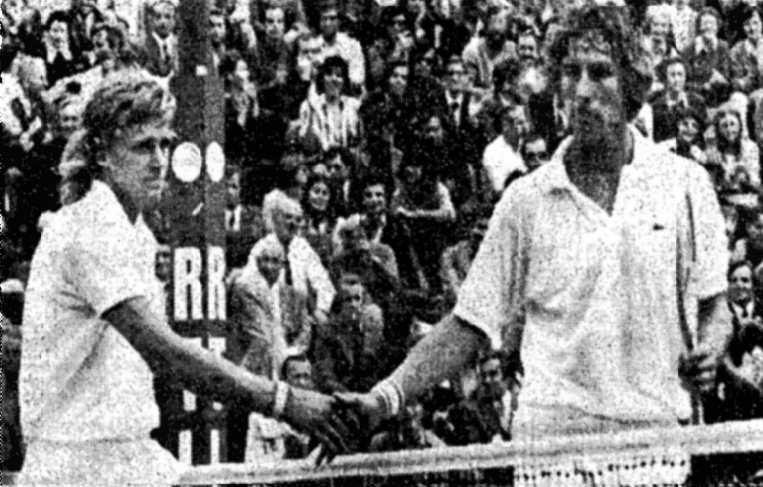The 1974 World of Tennis annual noted in its capsule biography of Björn Borg that the Swede had never been beaten by a younger player. That was hardly a surprise. He didn’t turn 17 until June 1973, so he didn’t face many younger players. And he wasn’t in the habit of losing to anybody.
Still, the adult game had its learning curve. Borg won the Orange Bowl junior event in both 1971 and 1972, and he picked up the Wimbledon boys’ title in 1972. He made his Davis Cup debut as a 15-year-old and upset New Zealand’s veteran Onny Parun. He was less consistent on tour, reaching the Monte Carlo final one week, losing a first-rounder in straight sets the next. He made his share of youthful mistakes, but the signature two-handed backhand and the unnaturally calm demeanor were already in place.
The 1973 French Open was his coming-out party. Borg began the event with a 6-2, 6-3 defeat of 9th-seeded American Cliff Richey. In the second round, he outlasted the veteran Frenchman Pierre Barthes, 3-6, 6-1, 8-6. “I didn’t expect to even win today,” said the young man. “He should have beat me.”
When Borg took the court for his third-round match against Dick Stockton on May 29th, he already had a fan club. The “long, fair hair flopping round his neck” won over scores of young women, and his acrobatic game appealed to the rest. Parisian fans were treated to a hard-fought battle in the first best-of-five-set round. Stockton was steadier, but Borg snuck away with the big points.
The 16-year-old advanced with a four-set victory, 6-7, 7-5, 6-2, 7-6. Stockton had four set points in the final tiebreak. Borg needed to run down a smash to save the second one. He awed the crowd one more time on his own match point at 10-9, which he secured with a lob winner.
No young player had a brighter future than the Swede. Adriano Panatta, the flashy Italian waiting for him in the fourth round, had beaten him twice already in 1973. Borg would be the underdog in that encounter, but he was playing the long game. “Now it all depends on me,” he said. “I think I can go all the way.”
* * *
The day was not so rewarding for Virginia Wade. Though the third seed wasn’t known for her clay-court prowess, she had reached the quarter-finals the year before. There was no reason she couldn’t do it again.
She lost anyway, to little-known Frenchwoman Odile de Roubin, 1-6, 6-2, 6-3. “I hate playing bad players and she was so bad,” Wade said. “Then the stadium was empty and there was no atmosphere and I played so stupidly.” No one was prepared to argue the point.
* * *
This post is part of my series about the 1973 season, Battles, Boycotts, and Breakouts. Keep up with the project by checking the TennisAbstract.com front page, which shows an up-to-date Table of Contents after I post each installment.
You can also subscribe to the blog to receive each new post by email:
